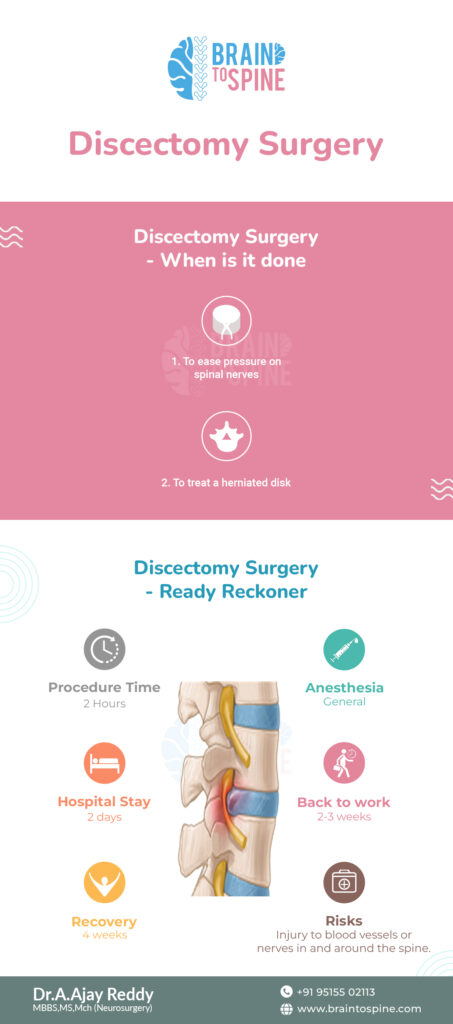

Care Before surgery
The Night before Surgery:
- Take a shower.
- Spend the evening resting and go to bed on time.
- Nothing, including water, should be consumed 8 hours before the scheduled surgery.
Morning of Surgery:
- Some drugs that must be taken regularly, such as blood pressure or thyroid disease drugs, may need to be taken on the morning of surgery.
- Discuss with your doctor in advance and take your drug if necessary. Nothing, including water, should be consumed 6-8 hours before the scheduled surgery.
- Remove your contact lenses. Remove your earrings, necklaces, hairpins, and piercings. Remove nail polish. Do not bring valuable things with you.
Post Surgical Spinal Precautions – Discectomy
- Do not bend forward at the waist more than 90º or raise knees higher than hips
- Do not lift more than 10 pounds.
- Do not twist your trunk while performing any activity.
- Do not cross knees or ankles while sitting, standing, or lying.
- Always log roll out of bed. Have a pillow between your knees for comfort and to help maintain precautions if necessary
Tip: Change positions often and alternate rest (sitting and lying down) with activity (walking and exercise) to increase comfort. Avoid sitting and standing for long periods.
FAQs
A lumbar discectomy is a procedure that includes removing a portion of a spinal disc. This technique is routinely performed by neurosurgeons on one or more bulging discs in the spine, particularly when the herniated disc pushes against the spinal cord or the main nerve roots that connect the spinal cord to other nerves in the body.
When a tiny portion of a spinal disc’s outer layer (called the annulus) weakens and rips as a result of degeneration or acute accident stress, the disc herniates. The fluid inner substance of the disc (the nucleus) is able to push the weaker region outward as a result of this injury.
Many of the symptoms of a herniated disc respond satisfactorily to non-surgical therapy, obviating the need for significant surgery. As a result, doctors often advise patients to exhaust all conservative treatment options before pursuing surgical treatments.
If conservative treatments like massage, physical therapy, anti-inflammatory medicines, and chiropractic adjustments don’t work after a few weeks, you may need lumbar discectomy. If you lose control of your bladder or bowels, you must have surgery right away to alleviate these critical symptoms.
Because the invasiveness of lumbar discectomies varies, so does the recuperation period. Patients may usually return to their normal routine 2 to 3 weeks after the operation. Patients should avoid bending, carrying heavy things, and sitting for lengthy periods of time for minimum period of 12 weeks following their lumbar discectomy. Patients might need some physical therapy to strengthen their backs after surgery, as well as a back brace in few patients for a short period.
If the patient is a good candidate, lumbar discectomies are frequently successful and beneficial. While every operation carries hazards, lumbar discectomies have a high success rate. More significantly, a successful lumbar discectomy provides significant relief from the painful symptoms produced by injured lumbar discs.
